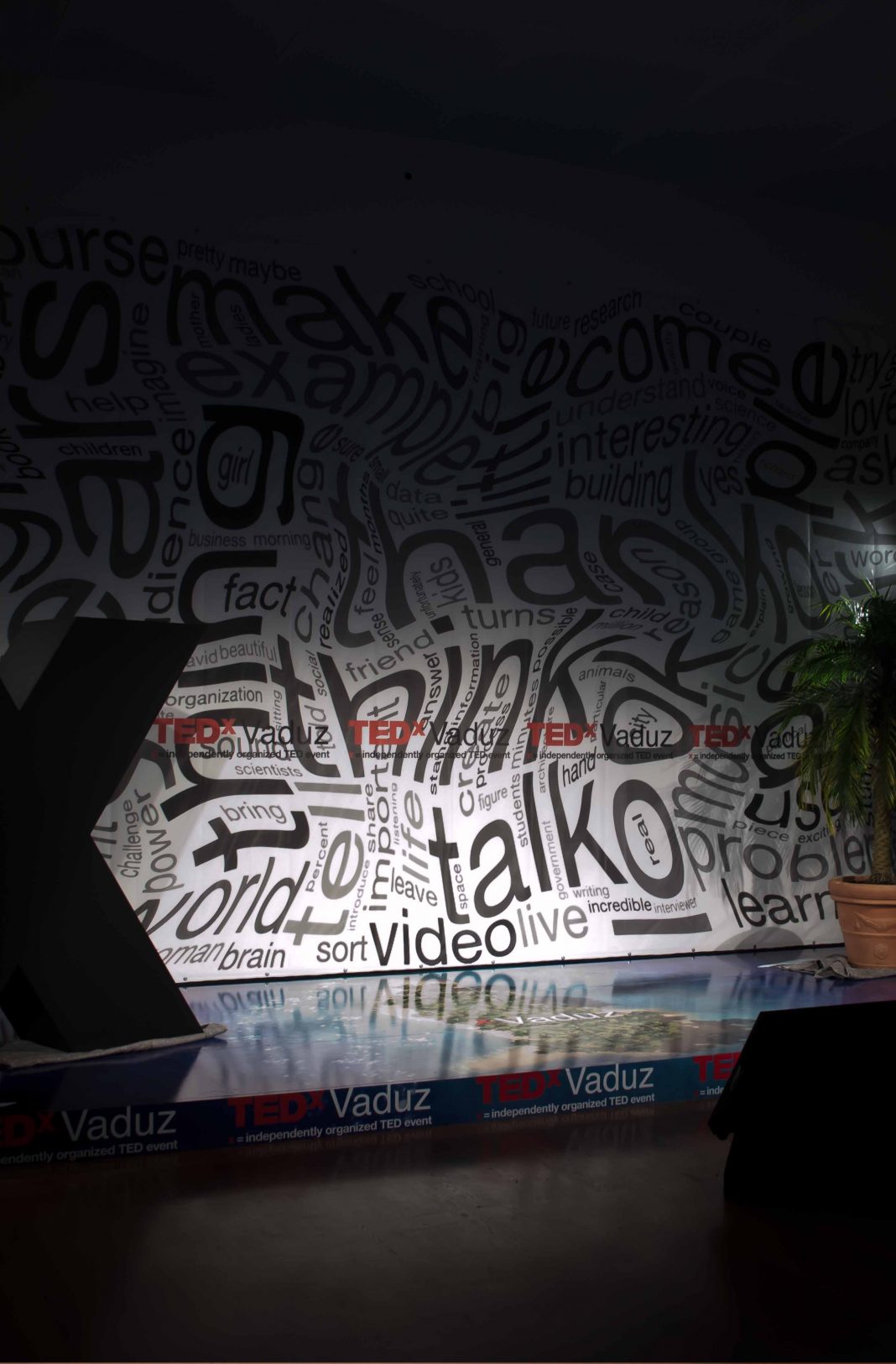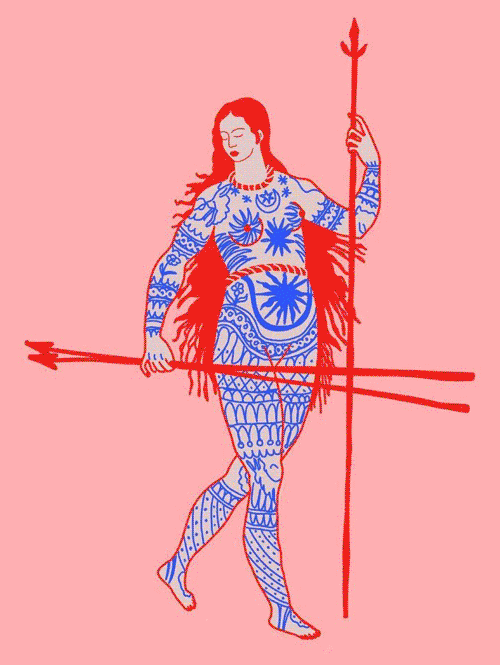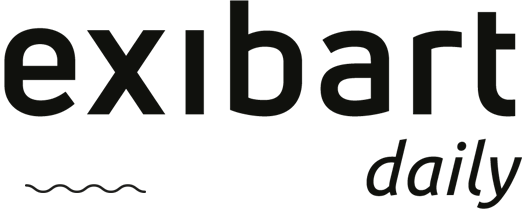Create an account
Welcome! Register for an account
La password verrà inviata via email.
Recupero della password
Recupera la tua password
La password verrà inviata via email.
-
- container colonna1
- Categorie
- #iorestoacasa
- Agenda
- Archeologia
- Architettura
- Arte antica
- Arte contemporanea
- Arte moderna
- Arti performative
- Attualità
- Bandi e concorsi
- Beni culturali
- Cinema
- Contest
- Danza
- Design
- Diritto
- Eventi
- Fiere e manifestazioni
- Film e serie tv
- Formazione
- Fotografia
- Libri ed editoria
- Mercato
- MIC Ministero della Cultura
- Moda
- Musei
- Musica
- Opening
- Personaggi
- Politica e opinioni
- Street Art
- Teatro
- Viaggi
- Categorie
- container colonna2
- container colonna1
Simon Denny – TEDxVaduz redux
TEDxVaduz è il primo evento indipendente TED, ufficialmente autorizzato, tenutosi presso il Kunstmuseum Liechtenstein il 7.12.2013.
Comunicato stampa
Segnala l'evento
Simon Denny
TEDxVaduz redux
February 27 – April 1 2014
T293
Via G. M. Crescimbeni 11, Rome
T: +39 (0)6 88980475
info@t293
TEDxVaduz was the first officially licensed, independently organised TED event in Liechtenstein, which happened at the Kunstmuseum Liechtenstein on 7.12.2013. It began as a collaborative project between Daniel Keller and Simon Denny as an aim to produce an event that would be in direct dialogue with TED, the strongest brand for spreading ideas on the planet and a format-defining benchmark for tech-economy communication forms like pitches and conference talks. TEDxVaduz was conceived as a vehicle for the reconsideration of some of the cultural implications of TED at a moment when strong voices from within the tech community like Balaji Srinivasan, Larry Page and Tim Draper are calling for different forms of separate societies run by Silicon Valley. For this outing TED is then nominally and geographically tied to a country that has the highest GDP per person in the world, is one of the few countries with more registered companies than citizens and has been referred to at times as a tax haven.
TED is a non profit organisation founded by California-based architect and graphic designer Richard Saul Wurman in 1984. It stands for Technology, Entertainment and Design. Wurman is also famous for coining the term information architect and has always been focused on making complex ideas clear to everyone. TED’s mission statement begins:
“We believe passionately in the power of ideas to change attitudes, lives and ultimately, the world. So we’re building a clearinghouse that offers free knowledge and inspiration from the world’s most inspired thinkers, and also a community of curious souls to engage with ideas and each other.”
Global luminaries such as Bill Gates, Eve Ensler, JJ Abrams, Julian Assange, Jeff Bezos, Bill Clinton and Sarah Silverman have been among the many speakers featured by TED. Occurring annually from 1990, by 2006 TED started offering all its talks for free online and greatly expanded its reach and brand power. In 2009 TED opened up further by licensing third parties to stage conferences modelled after TED all over the world, called “TEDx”. There have been TEDx events in over 130 countries and 1200 cities as far ranging as Bagdad, Nairobi, Sao Carlos and LA’s skid row. With its dramatically increased visibility - and more than 1billion youtube views - TED has attracted a huge amount of praise and more recently some scepticism and criticism. There are conflicting views on TED - none of which really capture its cultural complexity. Some have criticised it for being too corporate and others for having a liberal bias. Some consider that TED’s method of making complicated ideas accessible goes too far by potentially oversimplifying scientific concepts to pure rhetoric and conversely it is accused of elitism for only reflecting the biases of the technorati.
Along with Christiane Meyer-Stoll, Thomas Sorapperra and Denise Rigaud, from the Kunstmuseum Liechtenstein and Pamina Gerhardt and Alessa Rather from the Kulturkreis der Deutschen Wirtschaft im BDI e.V., Daniel Keller and Simon Denny put together a program of speakers that addressed themes relevant to Liechtenstein while also engaging with TED and its position in the world and media. Some of the speakers represent a group of artists and thinkers who were admired by Keller and Denny, others were programmed from the museum’s side - thinkers from the fields of art, architecture, design, economics and politics that related to or worked in the country.
The exhibition at T293, will present many of the artefacts associated with TEDxVaduz including the resultant videos and slide presentations in a concentrated installation. Central to the presentation will be the stage -designed by Keller and Denny - which served as the set for the talks. This stage contains a backdrop composed of a tag cloud made from the most used words in TED talks and an HD rendering of Liechtenstein as a tropical island in a clear blue sea. Also exhibited will be objects and images by Peter Fend, Femke Herregraven, Daniel Keller, Katja Novitskova and Emily Segal that relate to the presentations of the speakers.
Condensed reconsiderations of each presentation in the form of wall mounted sculptural vitrines made by Denny will focus the exhibition on key moments in the talks. Here imagery and quotes from the presentation encase a special series of display cakes, iced with the successful application from TED - producing “TEDxVaduz atmospheres”.
The artist would like to thank all the speakers and contributors to TEDxVaduz, the event’s hosts and co-organisers at the Kunstmuseum Liechtenstein and the Kulturekreis der Deutschen Wirtschaft im BDI e.V. who’s “Ars Viva” series the event took place. He would also like to thank Daniel Keller and Emily Segal, key voices in framing and conceiving the project that led to this exhibition.
Simon Denny
TEDxVaduz redux
27 febbraio – 1 aprile 2014
T293
Via G. M. Crescimbeni 11, Roma
T: +39 (0)6 88980475
info@t293
TEDxVaduz è il primo evento indipendente TED, ufficialmente autorizzato, tenutosi presso il Kunstmuseum Liechtenstein il 7.12.2013. Nato dalla collaborazione tra Daniel Keller e Simon Denny, il progetto ha avuto come obiettivo la produzione di un evento che fosse in dialogo diretto con TED, il più importante marchio al mondo per la diffusione di idee e punto di riferimento nella definizione di discorsi pubblici e conferenze per la comunicazione della tech-economy. TEDxVaduz è stato concepito come veicolo per il riesame di alcune delle implicazioni culturali di TED, in un momento in cui forti voci dall’interno della comunità tecnologica come Balaji Srinivasan, Larry Page e Tim Draper auspicano la creazione di società alternative gestite da Silicon Valley. A questo proposito TED è nominalmente e geograficamente legato a un paese che ha il più alto PIL pro capite nel mondo, uno dei pochi paesi con un numero maggiore di aziende registrate rispetto a quello dei cittadini ed indicato più volte come un paradiso fiscale.
TED è un’organizzazione non profit fondata nel 1984 dall'architetto e graphic designer con sede in California Richard Saul Wurman. È l’acronimo di Technology, Entertainment and Design. Wurman è famoso anche per aver coniato il termine ‘architettura dell'informazione’ ed è da sempre impegnato a rendere idee complesse chiare a tutti. La missione aziendale di TED inizia con questa dichiarazione:
“Crediamo fermamente nel potere delle idee di cambiare gli atteggiamenti, le vite e, in definitiva, il mondo. Per questo stiamo costruendo una camera di compensazione che offra libera conoscenza e sia da stimolo ai pensatori più ispirati del mondo, ed anche a una comunità di anime curiose di entrare in contatto tra di loro e con altre idee”.
Luminari mondiali come Bill Gates, Eve Ensler, JJ Abrams, Julian Assange, Jeff Bezos, Bill Clinton e Sarah Silverman sono stati tra i molti relatori presentati da TED. Con cadenza annuale dal 1990, a partire dal 2006 TED ha iniziato ad offrire tutte le sue relazioni gratuitamente online, ampliando notevolmente la portata e la potenza del suo marchio. Nel 2009 TED si è esteso ulteriormente offrendo a terzi la licenza per organizzare conferenze sul modello TED in tutto il mondo, chiamate “TEDx”. Eventi TEDx si sono svolti in oltre 130 paesi e 1200 città, da Baghdad, Nairobi, San Carlos, fino ai bassifondi di Los Angeles. Con questa visibilità incredibilmente aumentata - e con più di 1 miliardo di visualizzazioni su YouTube - TED ha attirato una quantità enorme di consensi e solo di recente di alcuni scetticismi e critiche. Ci sono opinioni contrastanti su TED - nessuna delle quali realmente coglie la sua complessità culturale. Alcuni lo hanno criticato per essere troppo aziendale ed altri per avere una propensione liberale. Alcuni ritengono che il metodo TED di rendere idee complicate accessibili vada troppo oltre, potenzialmente banalizzando concetti scientifici in pura retorica, mentre altri lo accusano di elitismo per il fatto di riflettere puramente i preconcetti dei technorati, l’élite dell’industria tech.
Con l’aiuto di Christiane Meyer - Stoll, Thomas Sorapperra e Denise Rigaud del Kunstmuseum Liechtenstein, e di Pamina Gerhardt e Alessa Rather del Kulturkreis der Deutschen Wirtschaft im BDI e.V., Daniel Keller e Simon Denny hanno messo insieme un programma di relatori che hanno affrontato temi relativi al Liechtenstein ma anche collegati con TED e la sua posizione nel mondo e nei media. Alcuni dei relatori rappresentavano un gruppo di artisti e pensatori apprezzati da Keller e Denny, altri sono stati invitati dal museo stesso - pensatori da ambienti dell’arte, dell’architettura, del design, dell’economia e della politica, legati al paese o residenti.
La mostra per T293 presenta molte delle realizzazioni connesse a TEDxVaduz, compresi i relativi video e le presentazioni in diapositive, concentrati in un’unica installazione. Al centro della sala si trova il palcoscenico - progettato da Keller e Denny - utilizzato come set per le relazioni. Il fondale del palco è costituito da una nuvola di tag composta dalle parole più usate nelle conferenze TED ed una rappresentazione in HD del Liechtenstein come un’isola tropicale in un mare cristallino. Una serie di oggetti ed immagini di Peter Fend, Femke Herregraven, Daniel Keller, Katja Novitskova ed Emily Segal fanno riferimento alle presentazioni dei relatori.
Le riconsiderazioni sulle presentazioni, condensate in forma di vetrine scultoree a parete realizzate da Denny, concentrano la mostra sui momenti chiave delle relazioni. Le immagini e le citazioni dalle presentazioni sono racchiuse in una serie speciale di torte, “TEDxVaduz atmospheres”, con la domanda di ammissione a TED a formarne la glassa.
L’artista ringrazia tutti i relatori ed i collaboratori di TEDxVaduz, gli ospiti della manifestazione e i co-organizzatori del Kunstmuseum Liechtenstein e del Kulturekreis der Deutschen Wirtschaft im BDI e.V., che hanno accolto il progetto “Ars Viva”. Un ulteriore ringraziamento a Daniel Keller ed Emily Segal, voci chiave nella definizione e ideazione del progetto che ha portato a questa mostra.
TEDxVaduz redux
February 27 – April 1 2014
T293
Via G. M. Crescimbeni 11, Rome
T: +39 (0)6 88980475
info@t293
TEDxVaduz was the first officially licensed, independently organised TED event in Liechtenstein, which happened at the Kunstmuseum Liechtenstein on 7.12.2013. It began as a collaborative project between Daniel Keller and Simon Denny as an aim to produce an event that would be in direct dialogue with TED, the strongest brand for spreading ideas on the planet and a format-defining benchmark for tech-economy communication forms like pitches and conference talks. TEDxVaduz was conceived as a vehicle for the reconsideration of some of the cultural implications of TED at a moment when strong voices from within the tech community like Balaji Srinivasan, Larry Page and Tim Draper are calling for different forms of separate societies run by Silicon Valley. For this outing TED is then nominally and geographically tied to a country that has the highest GDP per person in the world, is one of the few countries with more registered companies than citizens and has been referred to at times as a tax haven.
TED is a non profit organisation founded by California-based architect and graphic designer Richard Saul Wurman in 1984. It stands for Technology, Entertainment and Design. Wurman is also famous for coining the term information architect and has always been focused on making complex ideas clear to everyone. TED’s mission statement begins:
“We believe passionately in the power of ideas to change attitudes, lives and ultimately, the world. So we’re building a clearinghouse that offers free knowledge and inspiration from the world’s most inspired thinkers, and also a community of curious souls to engage with ideas and each other.”
Global luminaries such as Bill Gates, Eve Ensler, JJ Abrams, Julian Assange, Jeff Bezos, Bill Clinton and Sarah Silverman have been among the many speakers featured by TED. Occurring annually from 1990, by 2006 TED started offering all its talks for free online and greatly expanded its reach and brand power. In 2009 TED opened up further by licensing third parties to stage conferences modelled after TED all over the world, called “TEDx”. There have been TEDx events in over 130 countries and 1200 cities as far ranging as Bagdad, Nairobi, Sao Carlos and LA’s skid row. With its dramatically increased visibility - and more than 1billion youtube views - TED has attracted a huge amount of praise and more recently some scepticism and criticism. There are conflicting views on TED - none of which really capture its cultural complexity. Some have criticised it for being too corporate and others for having a liberal bias. Some consider that TED’s method of making complicated ideas accessible goes too far by potentially oversimplifying scientific concepts to pure rhetoric and conversely it is accused of elitism for only reflecting the biases of the technorati.
Along with Christiane Meyer-Stoll, Thomas Sorapperra and Denise Rigaud, from the Kunstmuseum Liechtenstein and Pamina Gerhardt and Alessa Rather from the Kulturkreis der Deutschen Wirtschaft im BDI e.V., Daniel Keller and Simon Denny put together a program of speakers that addressed themes relevant to Liechtenstein while also engaging with TED and its position in the world and media. Some of the speakers represent a group of artists and thinkers who were admired by Keller and Denny, others were programmed from the museum’s side - thinkers from the fields of art, architecture, design, economics and politics that related to or worked in the country.
The exhibition at T293, will present many of the artefacts associated with TEDxVaduz including the resultant videos and slide presentations in a concentrated installation. Central to the presentation will be the stage -designed by Keller and Denny - which served as the set for the talks. This stage contains a backdrop composed of a tag cloud made from the most used words in TED talks and an HD rendering of Liechtenstein as a tropical island in a clear blue sea. Also exhibited will be objects and images by Peter Fend, Femke Herregraven, Daniel Keller, Katja Novitskova and Emily Segal that relate to the presentations of the speakers.
Condensed reconsiderations of each presentation in the form of wall mounted sculptural vitrines made by Denny will focus the exhibition on key moments in the talks. Here imagery and quotes from the presentation encase a special series of display cakes, iced with the successful application from TED - producing “TEDxVaduz atmospheres”.
The artist would like to thank all the speakers and contributors to TEDxVaduz, the event’s hosts and co-organisers at the Kunstmuseum Liechtenstein and the Kulturekreis der Deutschen Wirtschaft im BDI e.V. who’s “Ars Viva” series the event took place. He would also like to thank Daniel Keller and Emily Segal, key voices in framing and conceiving the project that led to this exhibition.
Simon Denny
TEDxVaduz redux
27 febbraio – 1 aprile 2014
T293
Via G. M. Crescimbeni 11, Roma
T: +39 (0)6 88980475
info@t293
TEDxVaduz è il primo evento indipendente TED, ufficialmente autorizzato, tenutosi presso il Kunstmuseum Liechtenstein il 7.12.2013. Nato dalla collaborazione tra Daniel Keller e Simon Denny, il progetto ha avuto come obiettivo la produzione di un evento che fosse in dialogo diretto con TED, il più importante marchio al mondo per la diffusione di idee e punto di riferimento nella definizione di discorsi pubblici e conferenze per la comunicazione della tech-economy. TEDxVaduz è stato concepito come veicolo per il riesame di alcune delle implicazioni culturali di TED, in un momento in cui forti voci dall’interno della comunità tecnologica come Balaji Srinivasan, Larry Page e Tim Draper auspicano la creazione di società alternative gestite da Silicon Valley. A questo proposito TED è nominalmente e geograficamente legato a un paese che ha il più alto PIL pro capite nel mondo, uno dei pochi paesi con un numero maggiore di aziende registrate rispetto a quello dei cittadini ed indicato più volte come un paradiso fiscale.
TED è un’organizzazione non profit fondata nel 1984 dall'architetto e graphic designer con sede in California Richard Saul Wurman. È l’acronimo di Technology, Entertainment and Design. Wurman è famoso anche per aver coniato il termine ‘architettura dell'informazione’ ed è da sempre impegnato a rendere idee complesse chiare a tutti. La missione aziendale di TED inizia con questa dichiarazione:
“Crediamo fermamente nel potere delle idee di cambiare gli atteggiamenti, le vite e, in definitiva, il mondo. Per questo stiamo costruendo una camera di compensazione che offra libera conoscenza e sia da stimolo ai pensatori più ispirati del mondo, ed anche a una comunità di anime curiose di entrare in contatto tra di loro e con altre idee”.
Luminari mondiali come Bill Gates, Eve Ensler, JJ Abrams, Julian Assange, Jeff Bezos, Bill Clinton e Sarah Silverman sono stati tra i molti relatori presentati da TED. Con cadenza annuale dal 1990, a partire dal 2006 TED ha iniziato ad offrire tutte le sue relazioni gratuitamente online, ampliando notevolmente la portata e la potenza del suo marchio. Nel 2009 TED si è esteso ulteriormente offrendo a terzi la licenza per organizzare conferenze sul modello TED in tutto il mondo, chiamate “TEDx”. Eventi TEDx si sono svolti in oltre 130 paesi e 1200 città, da Baghdad, Nairobi, San Carlos, fino ai bassifondi di Los Angeles. Con questa visibilità incredibilmente aumentata - e con più di 1 miliardo di visualizzazioni su YouTube - TED ha attirato una quantità enorme di consensi e solo di recente di alcuni scetticismi e critiche. Ci sono opinioni contrastanti su TED - nessuna delle quali realmente coglie la sua complessità culturale. Alcuni lo hanno criticato per essere troppo aziendale ed altri per avere una propensione liberale. Alcuni ritengono che il metodo TED di rendere idee complicate accessibili vada troppo oltre, potenzialmente banalizzando concetti scientifici in pura retorica, mentre altri lo accusano di elitismo per il fatto di riflettere puramente i preconcetti dei technorati, l’élite dell’industria tech.
Con l’aiuto di Christiane Meyer - Stoll, Thomas Sorapperra e Denise Rigaud del Kunstmuseum Liechtenstein, e di Pamina Gerhardt e Alessa Rather del Kulturkreis der Deutschen Wirtschaft im BDI e.V., Daniel Keller e Simon Denny hanno messo insieme un programma di relatori che hanno affrontato temi relativi al Liechtenstein ma anche collegati con TED e la sua posizione nel mondo e nei media. Alcuni dei relatori rappresentavano un gruppo di artisti e pensatori apprezzati da Keller e Denny, altri sono stati invitati dal museo stesso - pensatori da ambienti dell’arte, dell’architettura, del design, dell’economia e della politica, legati al paese o residenti.
La mostra per T293 presenta molte delle realizzazioni connesse a TEDxVaduz, compresi i relativi video e le presentazioni in diapositive, concentrati in un’unica installazione. Al centro della sala si trova il palcoscenico - progettato da Keller e Denny - utilizzato come set per le relazioni. Il fondale del palco è costituito da una nuvola di tag composta dalle parole più usate nelle conferenze TED ed una rappresentazione in HD del Liechtenstein come un’isola tropicale in un mare cristallino. Una serie di oggetti ed immagini di Peter Fend, Femke Herregraven, Daniel Keller, Katja Novitskova ed Emily Segal fanno riferimento alle presentazioni dei relatori.
Le riconsiderazioni sulle presentazioni, condensate in forma di vetrine scultoree a parete realizzate da Denny, concentrano la mostra sui momenti chiave delle relazioni. Le immagini e le citazioni dalle presentazioni sono racchiuse in una serie speciale di torte, “TEDxVaduz atmospheres”, con la domanda di ammissione a TED a formarne la glassa.
L’artista ringrazia tutti i relatori ed i collaboratori di TEDxVaduz, gli ospiti della manifestazione e i co-organizzatori del Kunstmuseum Liechtenstein e del Kulturekreis der Deutschen Wirtschaft im BDI e.V., che hanno accolto il progetto “Ars Viva”. Un ulteriore ringraziamento a Daniel Keller ed Emily Segal, voci chiave nella definizione e ideazione del progetto che ha portato a questa mostra.
27
febbraio 2014
Simon Denny – TEDxVaduz redux
Dal 27 febbraio al primo aprile 2014
arte contemporanea
Location
T293
Roma, Via Ripense, 6, (Roma)
Roma, Via Ripense, 6, (Roma)
Orario di apertura
Martedì - Sabato, 11 - 13 / 15 - 19
(possono variare, verificare sempre via telefono)
Vernissage
27 Febbraio 2014, ore 19
Autore









